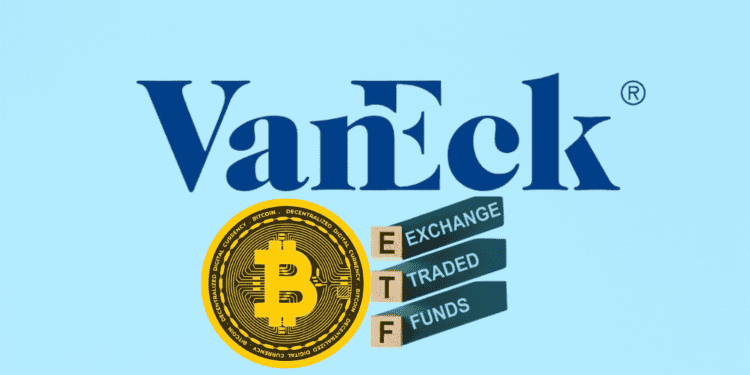- VanEck bought 1,640 BTC worth $72.5 million on Jan 5 to seed its potential spot Bitcoin ETF, bringing its holdings to over $73 million.
- Asset managers like VanEck, Ark Invest, 21 Shares, BlackRock, and Bitwise are competing through varied fee structures and strategic BTC purchases.
- Approval of spot Bitcoin ETFs could attract institutional and retail investors, funneling billions into crypto and possibly driving higher prices, but SEC approval is not guaranteed due to market risk concerns.
VanEck is heating up the competition by seeding its potential spot Bitcoin exchange-traded fund (ETF) with a substantial $72.5 million, according to the amended S-1 form filed on Jan. 8. The move is part of a broader strategy among various asset managers who are vying for the attention of investors through competitive fee structures and strategic investments.
VanEck Buys 1640 BTC
VanEck’s filing showed that the company purchased Bitcoin worth $72.5 million on Jan 5, which equates to 1,450,000 shares at a per-share price of $5,000. In total, the trust received 16,409.2489329 Bitcoin. These “Seed Creation Baskets” were delivered on Jan 5. The fund’s BTC holdings are worth $73.8 million as of press time on Jan 8.
Competition Heating Up
The competitive nature of the ETF landscape is further evident in the diverse fee structures proposed by various firms. Ark Invest and 21 Shares announced today that they have cut their fees from 0.8% to 0.25%, additionally offering a waiver on these fees for the first six months or until the first $1 billion is reached. Similarly, VanEck has also set its fee at 0.25%.
In a different approach, BlackRock has introduced a fee structure that begins at 0.2% for the first 12 months or for the initial $5 billion in its exchange-traded fund (ETF), after which it will rise to 0.3%. Meanwhile, Bitwise is implementing a no-fee policy for its first six months before transitioning to a 0.24% fee.
These varied fee offerings reflect each firm’s strategy to attract investors in a market increasingly acknowledging cryptocurrencies as a legitimate and attractive asset class.
Conclusion
Approval of these spot Bitcoin ETFs could herald a new era of mainstream crypto investment, offering a regulated investment vehicle that aligns with traditional asset classes. This would likely attract institutional and retail investors, funneling billions of dollars into digital assets and possibly driving higher prices. However, it’s important to note that the approval of these ETFs is not guaranteed. The SEC has historically been cautious about cryptocurrency-related products, citing concerns about market risks such as fraud and manipulation. Yet the changing regulatory climate and increased interest from major financial players suggest that approval may be on the horizon.














